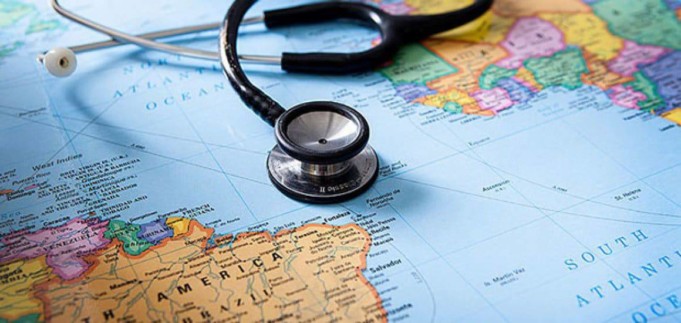The tragedies in Uganda and other African nations surrounding the Ebola outbreak have many people afraid to travel. However, some consider such dire risks to be a challenge. These are the people with the calling to serve and heal others less fortunate.
Helping others is second nature to those who would be healers. If you are one of these people, there are several things you need to know before you travel to a country to work or volunteer in international healthcare.
Varieties of Tasks
There are actually a variety of tasks for you to offer in international healthcare. You may be a medical practitioner, and offer hands-on care for hundreds of people, or you may want to shadow a professional to learn the craft in which you are interested.
You may have administrative skills that are sorely needed in distant fields. You may be one of the highly trained professionals who help to educate thousands of people about HIV, nutrition, prenatal, or maternal care.
The experiences you gain in foreign healthcare work will follow you all of your life, providing you with confidence and a reference point from now on.
Interpreters
In many cases, you may elect to go to an international healthcare location in which your native language is spoken as a second language. In other cases, you may need the services of an interpreter. For anyone planning to do international work, the knowledge of another language is the optimum skill. In these cases, you can receive your Frontier TEFL Certificate. This will qualify you to teach English as a foreign language in your destination country.
There are interpreter apps available for computer access. This can help you in communicating with the people in your chosen area. However, there is nothing like a real human who can interpret the subtleties of inflection that make so many languages inscrutable, and the slight shrug of a shoulder that can indicate an opposite meaning to the words spoken.
Translators and interpreters offer crucial services in these fields, especially when it comes to healthcare. That is why medical aid volunteers are not the only ones who are needed on the foreign fields. Interpreters are crucial to effective medical care, too.
Making Money
In some cases, you can actually make enough money to pay for your living expenses while you are in the field. Some organizations that place volunteers in international healthcare fields have paid positions, and can offer those to well-qualified people.
In many cases, it is the interpreter who is considered the crucial link between the healthcare professionals and the patients in any given area.
UCAS Points
With your work in international healthcare, whether as a medical professional or as an interpreter, you can earn credits toward your university application. You can win as many as 70 UCAS points when you earn a CoPE, or Certificate of Personal Effectiveness.
Any work you do overseas will help the people to whom you minister. It will also help you, and often in ways you never imagined.












